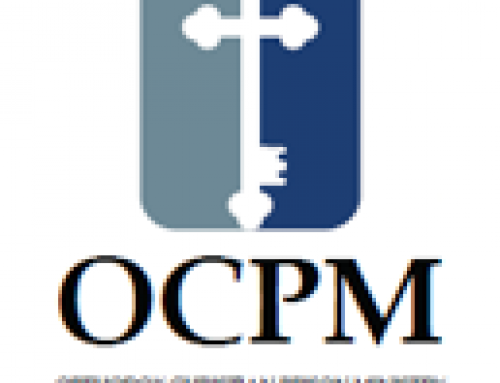This post was originally published on this site
St. Dionysios lived originally in the city of Athens. He was raised there and received a classical Greek education. He then went to Egypt, where he studied astronomy at the city of Heliopolis. It was in Heliopolis, along with his friend Apollophonos where he witnessed the solar eclipse that occurred at the moment of the death of the Lord Jesus Christ by Crucifixion. “Either the Creator of all the world now suffers, or this visible world is coming to an end,” Dionysios said. Upon his return to Athens from Egypt, he was chosen to be a member of the Areopagus Council (Athenian high court).
When the holy Apostle Paul preached at the place on the Hill of Ares (Acts 17:16-34), Dionysios accepted his salvific proclamation and became a Christian. For three years, Saint Dionysios remained a companion of the holy Apostle Paul in preaching the Word of God. Later on, the Apostle Paul selected him as bishop of the city of Athens. And in the year 57, Saint Dionysios was present at the repose of the Most Holy Theotokos. According to ancient tradition, he received a martyr’s end (according to some, in Athens itself) about the year 96.
The writings attributed to Dionysios the Areopagite include On the Celestial Hierarchies, On the Ecclesiastical Hierarchies, On the Divine Names of God, On Mystical Theology, and ten letters.The book On the Celestial Hierarchies speaks of the Christian teaching about the angelic world. The angelic (or Celestial-Heavenly) hierarchy comprises the nine angelic Ranks. On the Ecclesiastical Hierarchies is a continuation of his book On the Celestial Hierarchies. The Church of Christ, like the Angelic ranks, in its universal service is set upon the foundation of priestly principles established by God.
The book On the Names of God expounds upon the way of divine knowledge through a progression of the Divine Names. And finally, the book On Mystical Theology sets forth the teaching about divine knowledge through unmediated experience. The written works of St. Dionysios are of extraordinary significance in the theology of the Orthodox Church. To learn more about his teachings, check out our other discussion guides this month.
What about Pseudo-Dionysios?
Without going into too much detail, it is important to note that most scholars, including Orthodox scholars, believe that these writings were produced in the 5th or 6th century by an Orthodox monk taking the name of Dionysios, not by the first century convert of St. Paul in the book of Acts. It is likely that this anonymous author wrote under the name of Dionysios not as a means of deception but as a way to honor St. Dionysios and symbolically connect his writings to the spread of Christianity among the Greeks as they draw on the Greek philosophical tradition. Because of this, the previously mentioned writings are often attributed to “Pseudo-Dionyisos” to distinguish this author from the first-century bishop. In its wisdom, the Church does not require us to distinguish between these two men if they are indeed different from one another, but rather, allows us to honor both through the life of the first-century bishop while recognizing the deep significance of the (most likely) later writings attributed to him. As such, this guide will emphasize both the life of Dionysios the Areopagite and the writings given to us in the Tradition of the Church under his name.
Feast Day: October 3
Life adapted from oca.org.
How can St. Dionysios intercede for us?
St. Dionysios is especially known for guiding us to the experience of God through His creation, through the divine mysteries of the Church, and ultimately in the silence and mystery of prayer. Ask for his intercessions when you are struggling to see the good in this world, when you are finding yourself disengaged from the liturgical life of the Church, or when you are struggling to keep a rule of prayer or study Scripture.
Discussion Questions
- What daily practices can we cultivate to recognize God in everything as St. Dionysios encourages us to do in his teachings?
- St. Dionysios is known for his depth of knowledge and ability to baptize pagan Greek thought and show us how its concepts can be used to express the experience of knowing God. What examples from your own secular education point you towards God? What concepts seem to bear seeds of the full truth of the gospel?
- St. Dionysios addresses many of the difficult images of Scripture. When you read Scripture and feel confused, how do you approach difficult passages? Are there any resources you could share with the group that you’ve found helpful?
Learn his troparion.
Tone 4
Having learned goodness and maintaining continence in all things,
you were arrayed with a good conscience as befits a priest.
From the chosen Vessel you drew ineffable mysteries;
you kept the faith, and finished a course equal to His.
Bishop martyr Dionysios, entreat Christ God that our souls may be saved.
Pray with him.
O Lord God, Who art simplex, not compound, and hidden in essence sublime! God the Father, from Whom all paternity which is in heaven and earth is named, Source of Divinity, of those who participate in the Divine Nature, and Perfector of those who attain perfection; Good above all good, and Beautiful above all beautiful; Peaceful repose, Peace, Concord and Union of all souls; compose the dissensions which divide us from one another, and lead them back to an union with charity, which has a kind of similitude to Thy sublime essence: and as Thou art One above all, and we, one, through the unanimity of a good mind; that we may be found before Thee simplex and not divided, whilst celebrating this mystery; and that through the embraces of Charity and bonds of Love, we may be spiritually one, both with ourselves and with one another, through that Thy Peace pacifying all; through the Grace and Compassion and Love towards man of Thine Only-begotten Son; through Whom, and with Whom is due to Thee, glory, honor and dominion, with Thy most holy Spirit. Amen.
Taken from a liturgy attributed to St. Dionysios



